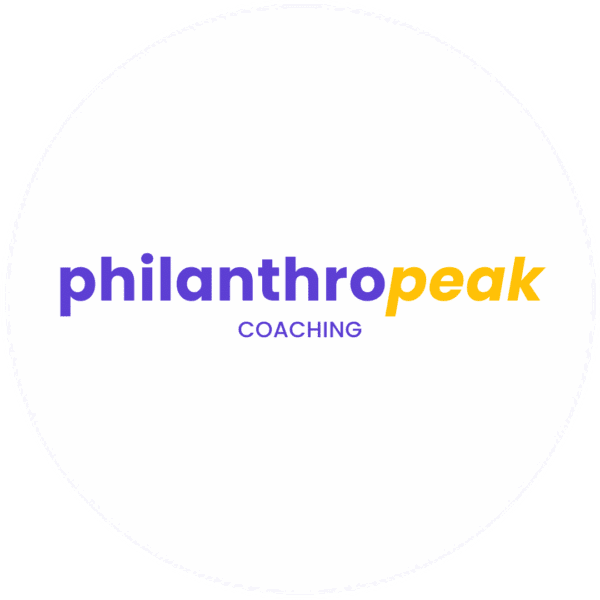
Effective Strategies for ADHD Adults to Achieve Peak Productivity and Thrive
Table of Contents
ToggleLiving with ADHD as an adult can be challenging, but with the right strategies, it’s possible to boost productivity and lead a fulfilling life. This article explores various methods that can help ADHD adults manage their symptoms effectively and achieve their goals. By understanding ADHD and implementing practical solutions, individuals can harness their unique strengths and thrive in their daily activities.
Key Takeaways
- Recognise the signs of ADHD to understand how it affects you.
- Create a tidy and organised space to help you focus better.
- Use timers to manage your time and break tasks into smaller steps.
- Take regular breaks to keep your mind fresh and focused.
- Eat well, exercise, and sleep enough to support your overall health.
Understanding ADHD in Adults
Recognising the Symptoms of ADHD
ADHD, or Attention-Deficit/Hyperactivity Disorder, is a condition that affects many adults. Common symptoms include inattentiveness, hyperactivity, and impulsiveness. Adults with ADHD may find it easy to focus on tasks they enjoy but struggle with mundane activities. Here are some key symptoms:
- Difficulty concentrating on tasks
- Forgetfulness in daily activities
- Restlessness or feeling on edge
The Impact of ADHD on Daily Life
Living with ADHD can significantly affect daily life. It can lead to challenges in work, relationships, and personal well-being. Adults may experience:
- Trouble meeting deadlines
- Struggles with organisation
- Increased stress and anxiety
Common Misconceptions About ADHD
There are many myths surrounding ADHD. One common misconception is that ADHD only affects children. In reality, ADHD can persist into adulthood and may change over time. For instance, hyperactivity may lessen, but restlessness can remain. Understanding these misconceptions is crucial for better support and management of the condition.
ADHD is a complex condition that requires understanding and tailored strategies for effective management.
| Symptom Type | Description | Example |
|---|---|---|
| Inattention | Difficulty focusing on tasks | Forgetting appointments |
| Hyperactivity | Excessive movement or restlessness | Fidgeting during meetings |
| Impulsivity | Acting without thinking | Interrupting others during conversations |
Creating a Structured Environment

Creating a structured environment is essential for adults with ADHD to thrive. A well-organised space can significantly improve focus and productivity. Here are some strategies to help you create a more structured environment:
Organising Your Physical Space
- Declutter regularly: Keep only what you need and love.
- Use labels for storage bins to easily find items.
- Create a designated area for important documents.
Establishing a Consistent Routine
- Set specific times for daily tasks.
- Use a planner or digital calendar to track activities.
- Stick to a morning and evening routine to create stability.
Utilising Tools and Technology for Organisation
- Consider using task management apps to keep track of your to-do list.
- Visual cues, like colour-coded notes, can help remind you of important tasks.
- Time blocking can be an effective way to allocate time for specific activities.
A structured environment not only helps in managing tasks but also reduces stress and anxiety.
By focusing on effective organisation management for adults with ADHD, you can create a system that enhances your daily productivity and overall well-being. Remember, small changes can lead to significant improvements in your daily life!
Time Management Techniques
Managing time effectively is crucial for adults with ADHD. Here are some strategies that can help:
Prioritising Tasks Effectively
- Identify what’s important: Make a list of tasks and highlight the most urgent ones.
- Use a priority matrix to sort tasks by importance and urgency.
- Focus on completing high-priority tasks first to feel a sense of achievement.
Using Timers and Alarms
- Set timers for specific tasks to create a sense of urgency. This can help you stay focused and avoid distractions.
- Use alarms to remind you of important deadlines or appointments. This is especially useful for those who struggle with time awareness.
- Consider the Pomodoro Technique: work for 25 minutes, then take a 5-minute break. This method can boost productivity and keep you engaged.
Breaking Tasks into Manageable Steps
- Divide larger tasks into smaller, more manageable steps. This makes them less overwhelming and easier to tackle.
- Create a checklist to track your progress. Checking off completed tasks can provide a sense of accomplishment.
- Remember, it’s okay to ask for help if you’re feeling stuck. Seeking support can make a big difference in managing your workload.
Effective time management is about finding what works best for you. Experiment with different techniques and adapt them to fit your needs.
By implementing these strategies, you can improve your productivity and manage your time more effectively, leading to a more organised and fulfilling life.
Enhancing Focus and Concentration
Minimising Distractions
To improve focus, it’s essential to reduce distractions in your environment. Here are some effective strategies:
- Create a quiet workspace: Find a place where you can work without interruptions.
- Limit digital distractions: Turn off notifications on your phone and computer.
- Use noise-cancelling headphones: These can help block out background noise.
Practising Mindfulness and Meditation
Mindfulness and meditation can significantly enhance concentration. Consider these practises:
- Start with short sessions: Begin with just five minutes a day.
- Focus on your breath: Pay attention to your breathing to help clear your mind.
- Use guided meditations: There are many apps available that can guide you through the process.
Incorporating Regular Breaks
Taking breaks is crucial for maintaining focus. Here’s how to do it effectively:
- Follow the Pomodoro Technique: Work for 25 minutes, then take a 5-minute break.
- Engage in physical activity: A quick walk or stretch can refresh your mind.
- Stay hydrated: Drink water during breaks to keep your brain functioning well.
Regular breaks can help you recharge and return to your tasks with renewed energy. Remember, balance is key!
By implementing these strategies, you can create an environment that supports your focus and concentration, allowing you to thrive despite the challenges of ADHD. Embrace the positive distractions that work for you, and don’t hesitate to seek support when needed.
Building a Supportive Network
Creating a strong support system is essential for adults with ADHD. Connecting with others who understand your challenges can make a significant difference. Here are some ways to build that network:
Seeking Professional Guidance
- Look for therapists or coaches who specialise in ADHD.
- Consider joining workshops or seminars focused on ADHD management.
- Explore online resources for professional advice.
Connecting with Support Groups
- Join local or online support groups to share experiences.
- Participate in discussions about coping strategies and successes.
- Engage with communities that focus on ADHD awareness and education.
Communicating with Family and Friends
- Talk openly about your ADHD with loved ones.
- Educate them on how they can support you better.
- Encourage them to join you in activities that help manage your symptoms.
Building a supportive network is not just about receiving help; it’s also about sharing your journey with others.
By fostering these connections, you can empower yourself on your path to managing ADHD effectively. Remember, support is key to thriving in daily life!
Adopting a Healthy Lifestyle
Living a healthy lifestyle is crucial for adults with ADHD. Making the right choices can significantly improve your daily functioning and overall well-being. Here are some key areas to focus on:
The Role of Nutrition in Managing ADHD
- Stick to a schedule: Eating at consistent times helps maintain energy levels and prevents overeating later. This can be especially helpful for managing impulsivity.
- Incorporate a variety of foods: Aim for a balanced diet rich in fruits, vegetables, whole grains, and lean proteins. This can support brain health and improve focus.
- Stay hydrated: Drinking enough water is essential for maintaining concentration and energy throughout the day.
Importance of Regular Exercise
- Engage in physical activity: Regular exercise can help reduce symptoms of ADHD by improving mood and focus. Aim for at least 30 minutes of moderate exercise most days of the week.
- Try different activities: Find what you enjoy, whether it’s walking, cycling, or dancing. This can make it easier to stick to a routine.
- Set achievable goals: Start with small, realistic fitness goals to build confidence and motivation.
Ensuring Adequate Sleep
- Prioritise sleep: Aim for 7-9 hours of quality sleep each night. Lack of sleep can worsen ADHD symptoms and affect your ability to concentrate.
- Create a bedtime routine: Establish calming activities before bed, such as reading or meditating, to signal to your body that it’s time to wind down.
- Limit screen time: Reduce exposure to screens at least an hour before bed to improve sleep quality.
A healthy lifestyle is not just about diet and exercise; it’s about creating a balanced routine that supports your unique needs. Embrace your strengths and make small changes that lead to sustainable success.
By focusing on these areas, adults with ADHD can create a supportive environment that fosters productivity and well-being. Remember, achieving personal goals starts with understanding your body and mind, and making choices that align with your strengths and interests.
Leveraging Strengths and Interests
Identifying Personal Strengths
Recognising your unique strengths is crucial for maximising productivity. Here are some ways to identify them:
- Reflect on past successes: Think about times when you felt proud of your achievements.
- Ask for feedback: Seek input from friends or colleagues about what they see as your strengths.
- Take personality tests: Tools like the StrengthsFinder can help highlight your natural talents.
Aligning Tasks with Interests
When you align your tasks with your interests, work becomes more enjoyable. Consider these strategies:
- Choose projects that excite you: Focus on tasks that you are passionate about.
- Incorporate hobbies into work: Find ways to blend your interests with your job.
- Set personal goals: Create goals that reflect what you love to do.
Embracing Creativity and Innovation
ADHD adults often have a unique perspective that can lead to innovative ideas. To harness this creativity:
- Allow for flexibility: Give yourself the freedom to explore new ideas without strict rules.
- Use brainstorming sessions: Gather with others to share and develop creative thoughts.
- Experiment with different approaches: Don’t be afraid to try new methods in your work.
Embracing your strengths and interests can lead to greater satisfaction and success.
By focusing on what you do best and what you love, you can turn challenges into strengths. This approach not only enhances productivity but also fosters a sense of fulfilment in your daily life. Remember, leveraging your unique abilities is key to thriving with ADHD.
Discover how to make the most of your unique strengths and interests! At PhilanthroPeak Coaching, we believe that understanding what you excel at can lead to amazing opportunities. Join us on our website to learn more about how we can help you unlock your potential and thrive in your professional journey!
Conclusion
In summary, adults with ADHD can find ways to be more productive and successful. By using the right tools and techniques, they can manage their time better and stay focused on their tasks. It’s important to remember that everyone is different, so what works for one person might not work for another. Finding the right strategies that fit your own style is key. With patience and practise, anyone can improve their productivity and lead a fulfilling life.
Frequently Asked Questions
What are the signs that an adult might have ADHD?
Adults with ADHD often have trouble staying focused, feel restless, and may forget things easily. They might also struggle to finish tasks or get easily distracted.
How does ADHD affect everyday life?
ADHD can make daily activities challenging. It may be hard to keep up with work, manage time, or maintain relationships. This can lead to stress or feelings of being overwhelmed.
Are there any myths about ADHD that people should know?
Yes, one common myth is that ADHD only affects children. In reality, many adults also have it. Another myth is that people with ADHD are just lazy, but it’s more about how their brains work.
What can I do to create a better work environment for myself?
You can start by keeping your workspace tidy and free from distractions. Having a set routine each day can also help you stay on track.
How can I manage my time better with ADHD?
Using timers can be very helpful. Try breaking your tasks into smaller steps and focusing on one thing at a time. This can make it feel less overwhelming.
What lifestyle changes can help with ADHD symptoms?
Eating well, getting regular exercise, and ensuring you get enough sleep can all make a big difference. These habits can help you feel more balanced and focused.





